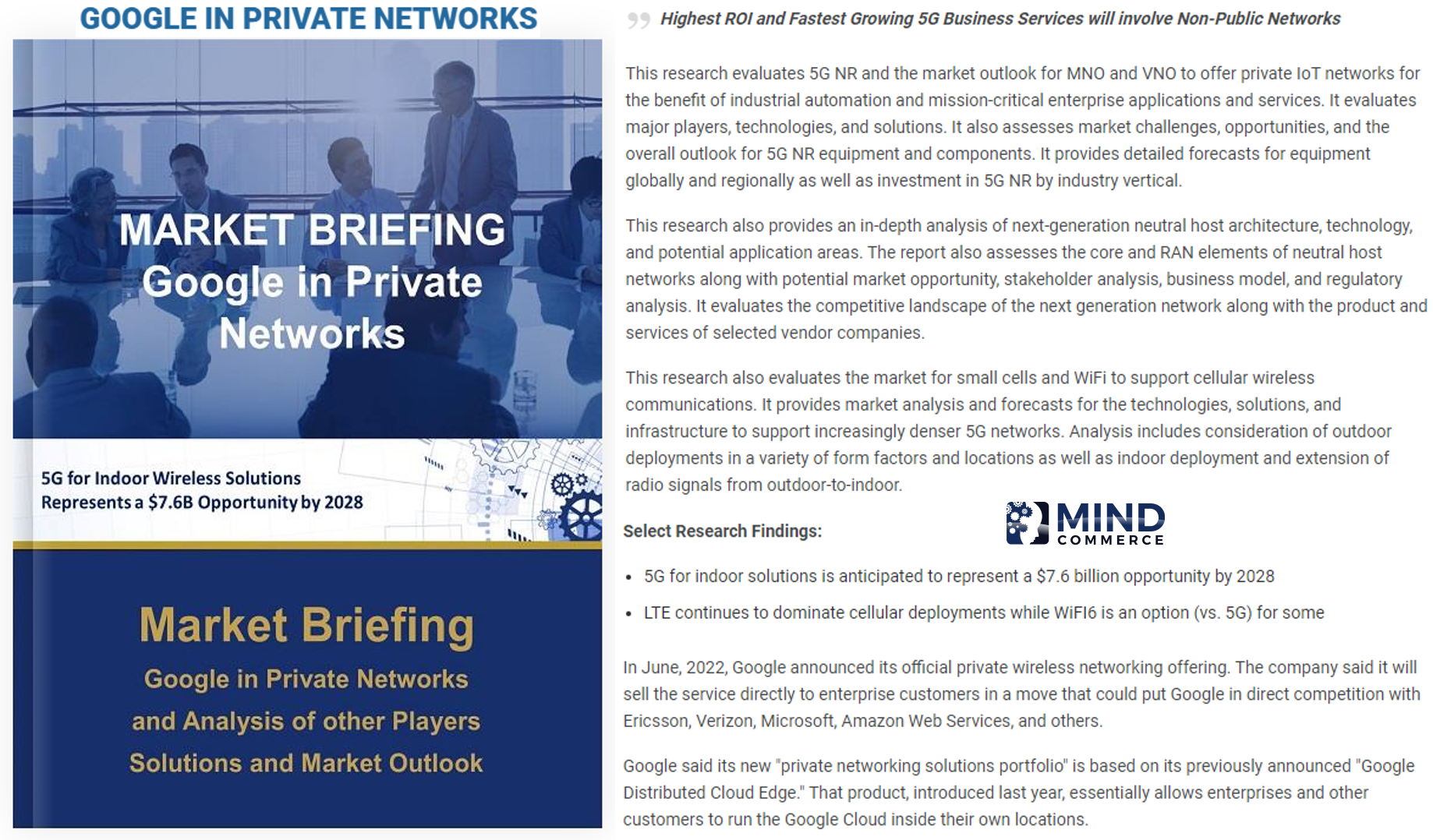The global private 5G network market is poised to reach more than $35 billion by 2030. The front-line market players in this space include Nokia, Ericsson, Verizon, Microsoft, AWS, and others.
Google Private Networks
To compete in the private network market, Google recently expanded its service offering with private wireless networking solution based on previously announced Google Distributed Cloud Edge. This represents a framework that is enabled by Anthos and is positioned as ideal for local data processing, edge computing, on-premises modernization, and meeting sovereignty, strict data security, and privacy requirements.
Google’s private network offering leverages both direct and indirect sales approach. Indirect sales partners include Betacom, Boingo, Celona, Crown Castle and Kajeet, which provide a means of reaching customers that Google may otherwise not obtain. Betacom started offering private 5G networking solution under as a service business model whereas Boingo and Crown Castle offers support solution for deploying cellular networks indoors and outdoors. Start-up company, Celona, offers self-branded cells and other access points while helping enterprise customers installing indoors and outdoors.
Google promotes its new offering as an alternative to corporate Wi-Fi networks that are often lacking in terms of reliability, security, and coverage. Google wants to take advantage of the limitations of existing Wi-Fi networks and position their new solutions as a better alternative. Enterprise in the US can use unlicensed 3.5GHz CBRS spectrum band to use Google’s solution offering.
One clear example is manufacturers, which can deploy a private network across a large factory site bridging operation, automation, and IoT devices with robust baseline connectivity. The solution supports next-generation functionality such as predictive maintenance and quality control using technology like computer vision analytics. The benefits of using private solutions include improving occupant safety, reduce costs, lower energy consumption via smart-building applications, and delivering new occupant and visitor experiences.
The implication of Google’s entrance is fierce competition ahead in the private wireless networking market. The market has already generated disruption for mobile networking companies such as Verizon and AT&T as they must compete with well-established cloud computing companies like Microsoft, AWS, Google, and startup companies including Celona and Betacom. There is also competition with system integrators like Dell and HPE, and cellular equipment vendors like Ericsson and Nokia. In addition, industrial equipment providers like Siemens and Honeywell and traditional enterprise networking vendors like Cisco, and Motorola represent competition within the private networks market.
Google Private Networks Market
The Mind Commerce market briefing, Google in Private Networks, analyzes the Google private network offering, market positioning, and partnerships. It also examines the wireless private network market including market size, competitive dynamics, competitive intensity and trends. Also see Private Network Market by LTE, 5G and Edge Computing in Enterprise, Industrial, and Government Solutions, which evaluates the private network market including the use of 5G new radio solutions. It also analyzes the market for MNO and VNO to offer private IoT networks for the benefit of industrial automation and mission-critical enterprise applications and services. The report evaluates major players, technologies, and solutions.







